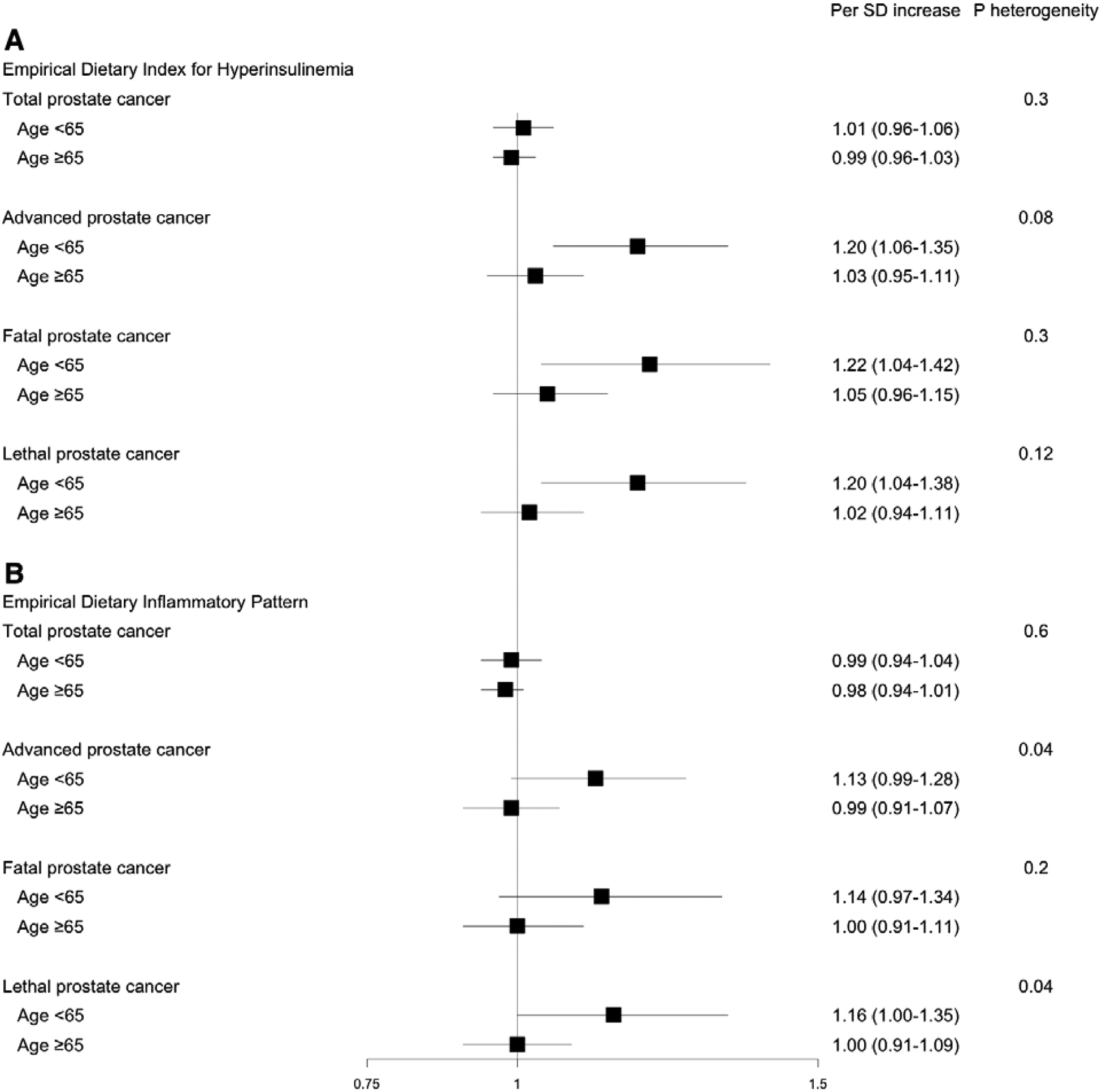Fig. 1 –

Multivariable-adjusted hazard ratios and 95% confidence intervals for the associations of (A) hyperinsulinemic and (B) inflammatory diet with prostate cancer risk by age subgroup. Dietary scores were adjusted for total energy intake using the residual method. Localized prostate cancer: stage T1/T2 and N0, M0 at diagnosis; advanced prostate cancer: stage T3b/T4/N1/M1 at diagnosis, or prostate cancer death or lymph node metastasis or distant metastasis over follow-up; fatal prostate cancer: prostate cancer death; lethal prostate cancer: prostate cancer death or distant metastasis; low-grade prostate cancer: Gleason 2–6 or 3 + 4; and high-grade prostate cancer: Gleason 4 + 3 or 8–10. Multivariable-adjusted models were stratified by age and time period, and adjusted for race, height, BMI at age 21, smoking, family history of prostate cancer, PSA test in previous cycle, PSA testing in >50% of previous cycles, multivitamin use, vitamin E supplement use, alcohol intake, physical activity, and aspirin use. The p value for heterogeneity was calculated using the likelihood ratio test comparing the models with and without the product term between each dietary pattern and age. BMI = body mass index; MET = metabolic equivalent of task; PSA = prostate-specific antigen; SD = standard deviation.
